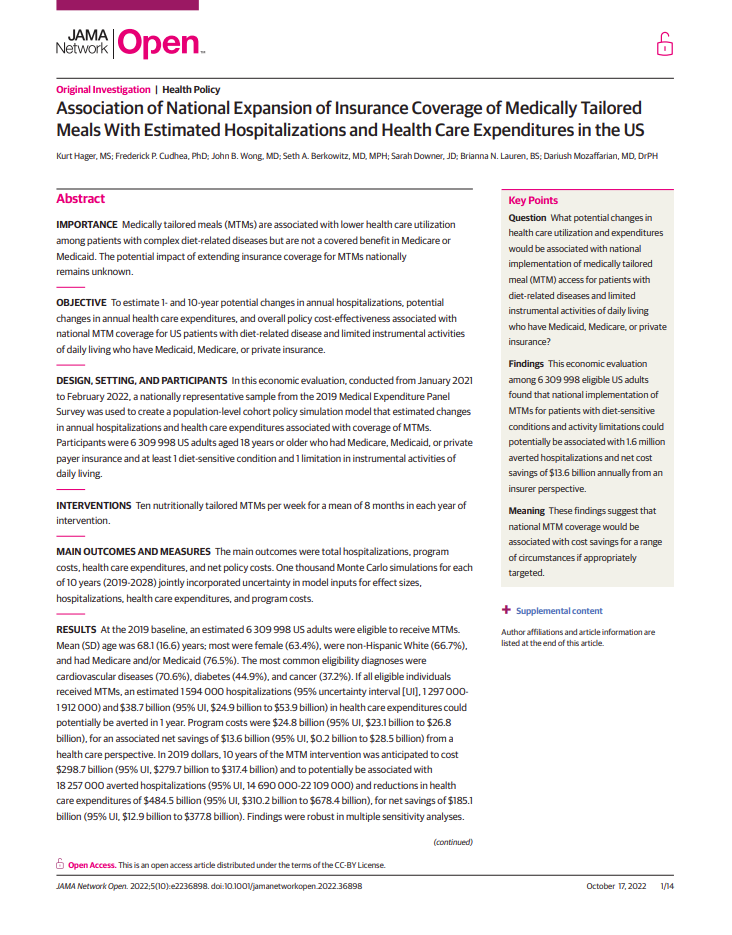Headline
Simulation model estimates that national implementation of medically tailored meal programs for specific populations would achieve over $13.6 billion in cost savings per year.
Context
Medically tailored meals programs are designed to provide nutritionally tailored, home-delivered meals for patients with diet-related chronic illness, with a focus on patients with lower income and food insecurity. While these programs have been shown to reduce health care utilization and costs, they are not currently a covered benefit in Medicare or Medicaid. This economic evaluation estimated how a medically tailored meal program for patients with diet-related disease and activity limitations would impact hospitalizations, health care expenditures, and cost effectiveness.
Findings
The simulation model created for this study found that medically tailored meals would be associated with nearly 1.6 million fewer hospitalizations for approximately 6.3 million eligible U.S. patients with severe comorbidities and activity limitations. The net cost savings (including program costs) would be $13.6 billion over one year and $185.1 billion over 10 years.
Takeaways
As states and private payers expand access to medically tailored meal programs, this economic evaluation provides evidence for state and federal policymakers, health plans, and health systems to invest in nutrition programs to achieve improved cost and utilization outcomes.

